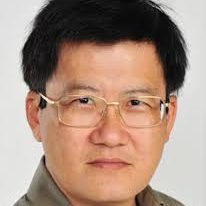
We would like to extend a special invitation to you for a Webinar on
Research Misconduct
“A Brief History and Three Case Studies”
by
Dr Lee Chu Keong
Wee Kim Wee School of Communication and Information
Nanyang Technological University
Galileo Galilei, Isaac Newton, John Dalton, Gregor Mendel and Robert Millikan have two things in common. First, they are all famous scientists (Millikan was also a Nobel laureate, and president of both the California Institute of Technology and the American Physical Society!), and second, they appear in an appendix titled “Known or Suspected Cases of Fraud” in the book Betrayers of the Truth, written by William Broad and Nicholas Wade.
In this presentation, I will touch on the definition of scientific misconduct (i.e., what exactly, constitutes scientific misconduct). The different forms in which scientific misconduct manifests itself, and history of scientific misconduct, will also be briefly discussed. I will then conclude by presenting three case studies of scientific fraud that shook and shocked the world of science, in an attempt to tease out why they occurred, why they took so long to be uncovered, the implications for other scientists, and how to prevent them from occurring again.
SPEAKER

About Dr Lee Chu Keong
I am a chemical engineer by training, and I have diverse teaching experience accumulated since I began teaching in 1991. In the Wee Kim Wee School, I have, so far, taught in two programmes, namely, the Master of Science (Information Studies) and Master of Science (Knowledge Management). In 2015, I taught the undergraduates for the first time (in the Information Analytics track).
I am currently the programme director for the Master of Science (Knowledge Management) and the Master of Science (Information Studies) programmes. I have diverse interest, I have taught in various modules in both programmes — Music and Art Libraries; Science and Technology Sources and Services; Management and Business Sources and Services; Sources and Searching; Foundations of Knowledge Management; and Information and Knowledge Assets.
Teaching is something I enjoy doing very much, and I’ve been told that I’m “natural” and “authentic” in front of the students, teaching. I am humbled that I won the Nanyang Teaching Award (School Level) in March 2015. mostly by having fun. I’m really blessed because I’m doing what I love. I like to experiment, and now, I am experimenting with teaching using stamps and first day covers. I take the KM students out on walks sometimes, which can help them think “out-of-the-box”. They can also talk about things they would not otherwise.
Throughout my life, I’ve been blessed with many-many opportunities to learn. These have been provided by parents, teachers, mentors, colleagues and also employers. Realising that many people have not had the opportunities that I benefited from, I started to do two things: (1) trying to provide students with as many learning opportunities as possible; and (2) starting OpenlySolved, an initiative that helps students from less well-to-do families in Singapore (www.openlysolved.org).
I also like photography, and so I combined information science and photography to come up with “informational photographs”, as opposed to artistic ones (there are enough of these out there, e.g., in Flickr). Photographs have the potential to convey so much information in a wordless way, information critical to some people.
I’m always available for coffee and a chat. Do drop by some time.

